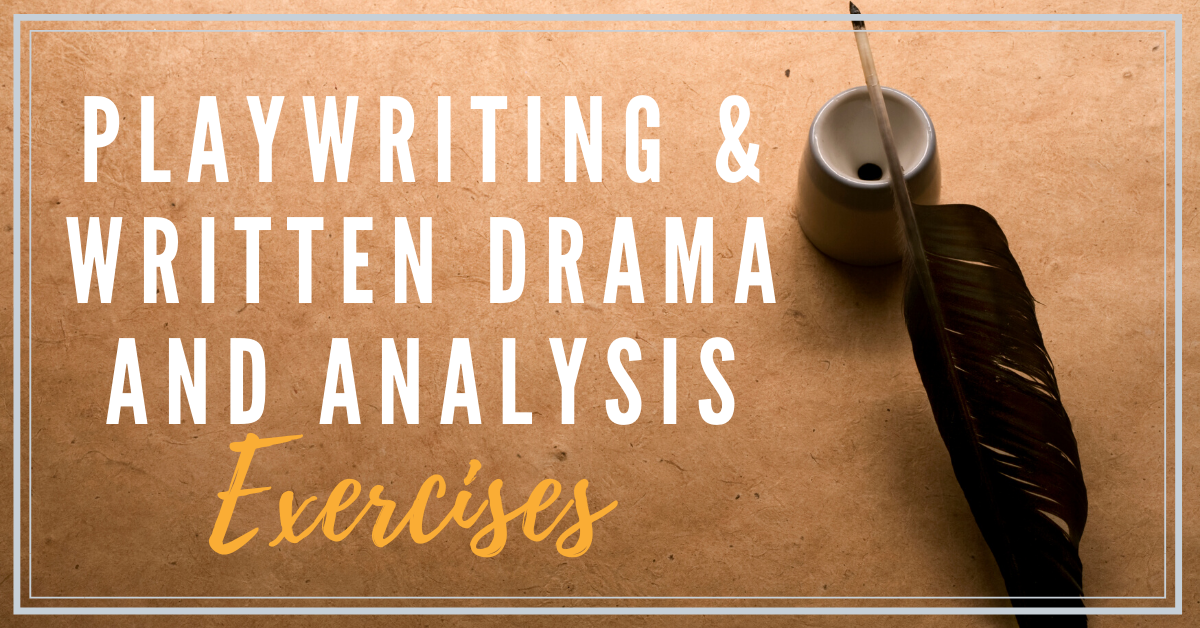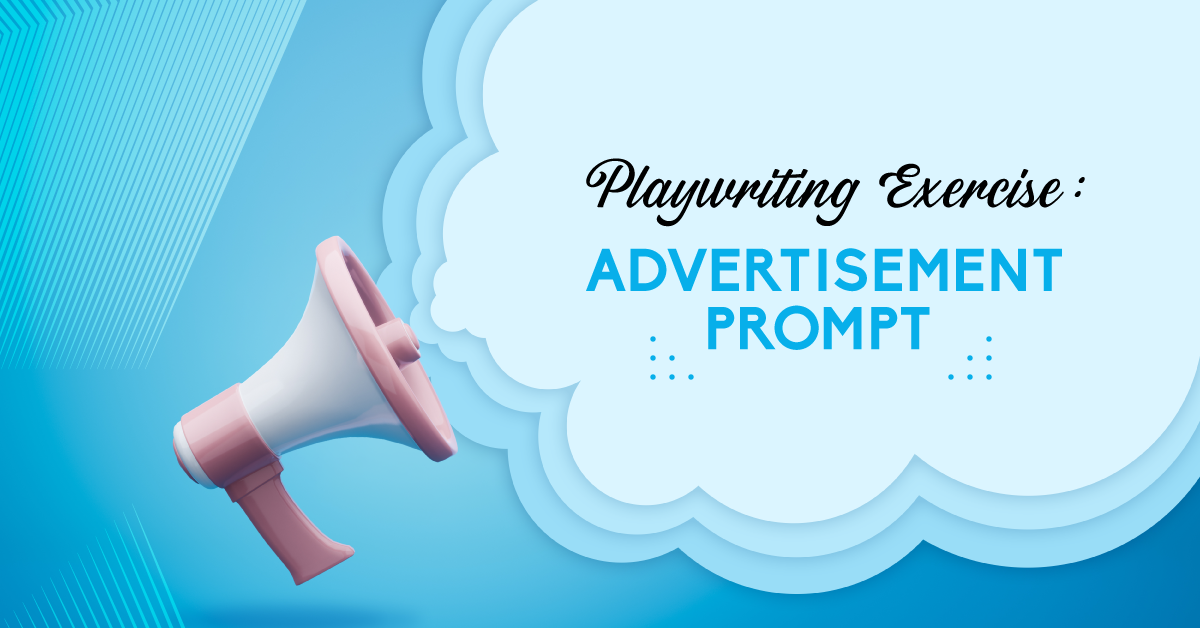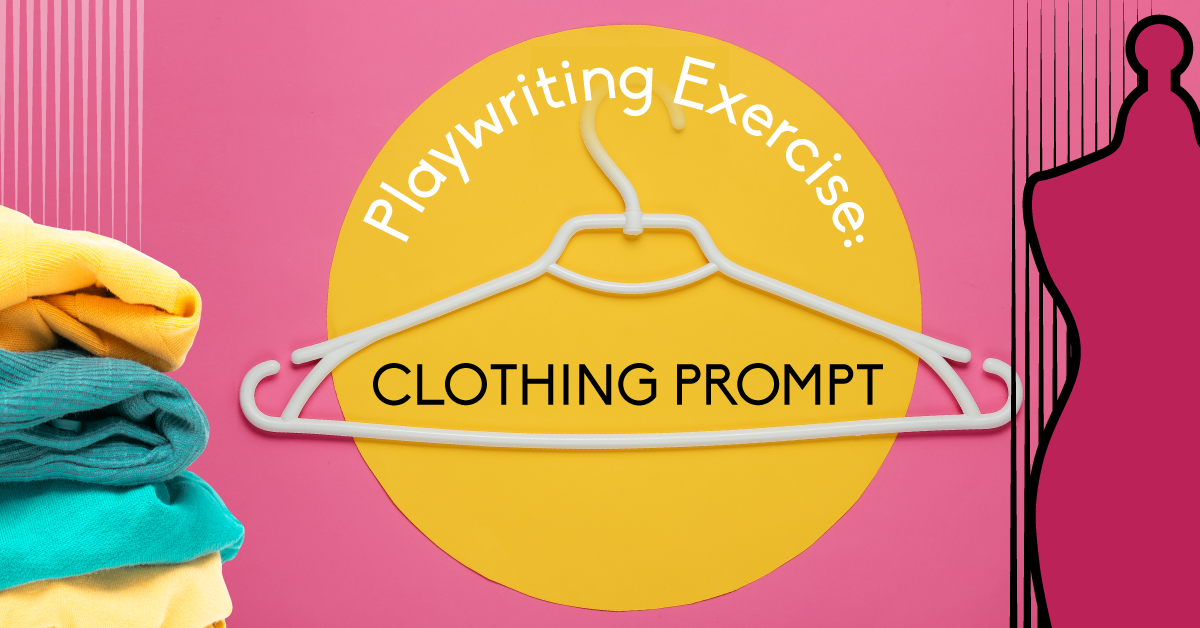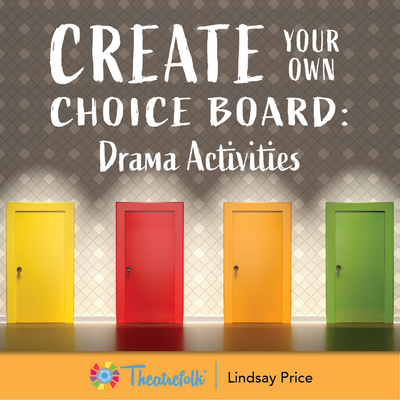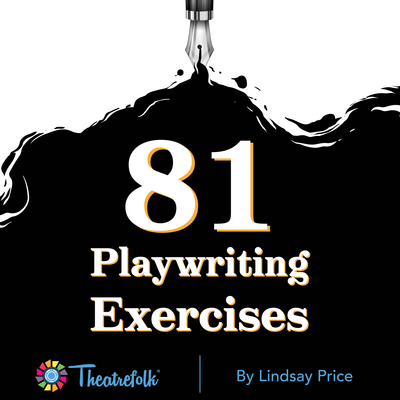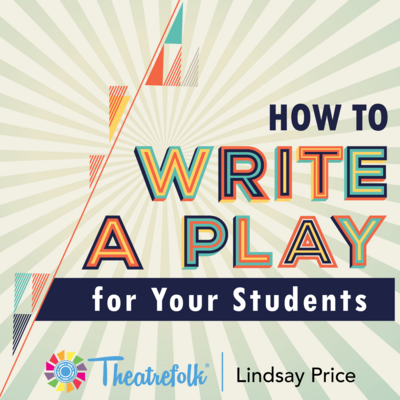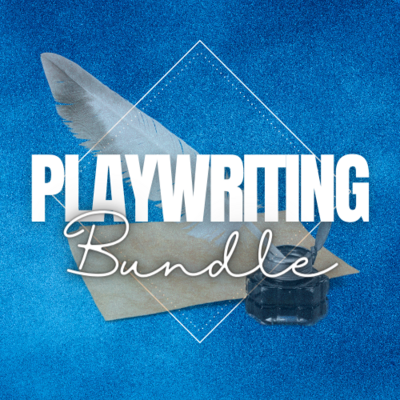Horror Movie 101: Failing Can Be Deadly by Steven Stack is a chilling mix of horror and humor - perfect for student performers and the spooky season! 👻
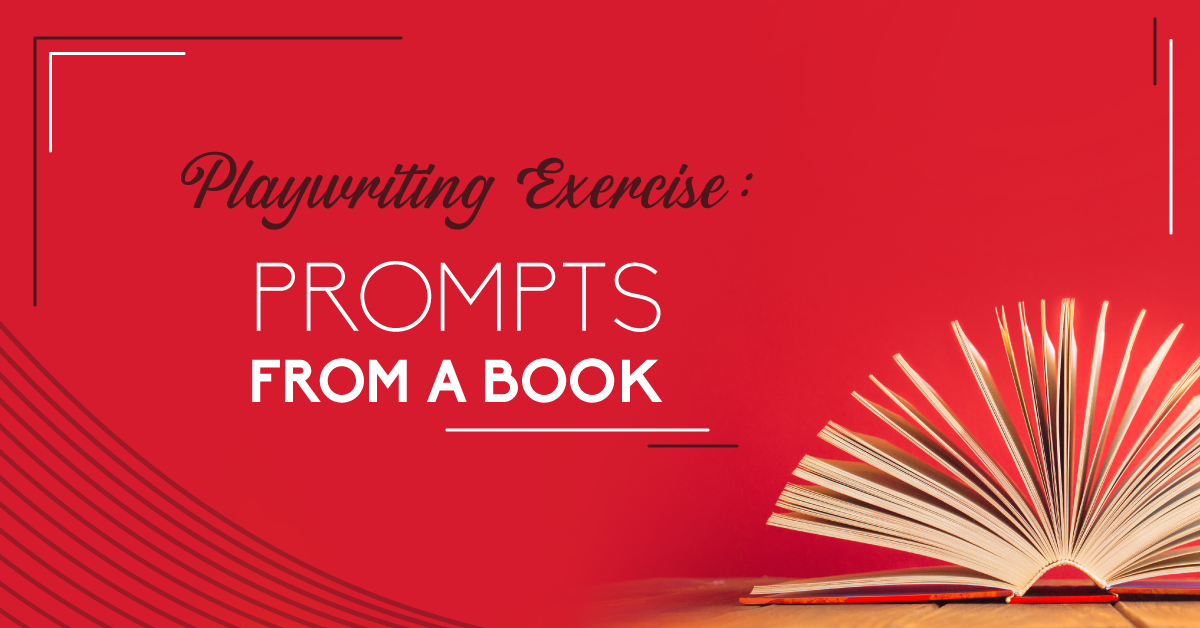
Playwriting Exercise: Prompts from a Book
Are your students feeling overwhelmed with possibilities for writing a new monologue? Do they need help focusing on one idea? Or are you simply looking for a way to get your students writing? For this exercise, all you’ll need is a book!
This individual writing exercise can be done in class in person or completed remotely via distance learning. It can either be used as a warm-up exercise or as part of a more formal playwriting lesson.
Materials Needed:
- Writing tools – pen and paper, or word processing program on computer/chromebook/tablet/smartphone.
- Any found book – can be a novel, textbook, nonfiction book, library book, or even a long article from a magazine or blog. You can use the same book for the full class, or have students select their own book from home.
- Timer or stopwatch (optional).
Directions:
1. Have students get their writing tools ready.
2. Select a book that’s close to you, or have students each grab the closest book to them. If there are no books handy, use a magazine with long articles, or have students look through their browser history on their device and find a long article they’ve recently read. Students will write the title and author of the book or article at the top of the page.
3. Turn to page 17, second paragraph, fifth sentence. Students will write that sentence on their page, exactly as it is written in the book. (If they are using a magazine or blog article, they will just use the second paragraph and fifth sentence portion of the prompt.) If one of the qualifiers is missing (for example, if page 17 only has one paragraph), have students use their best judgment to select a sentence as close to as many of the qualifiers as possible.
Here are some examples from my bookshelf. None of these books had the exact qualifiers, so I chose the closest sentences.
“Do you work hard to achieve things – but find no lasting satisfaction from your accomplishments?” (from Always Change a Losing Game by David Posen)
“Suddenly his high spirits were doused when his car was forced to a halt by a team of New Jersey State troopers.” (from Jon Bon Jovi: The Biography by Laura Jackson)
“As a Frenchwoman born and raised, she liked to point out that you could never know with the Belgians.” (from The Little Paris Bookshop by Nina George)
“I only hope you are right, John.” (from Tarzan of the Apes by Edgar Rice Burroughs)
4. Students will write a new monologue starting with that sentence. Encourage students to take the monologue wherever they feel inspired to go. They don’t need to stick to the plot, setting or character names from the original book. For example, the sentence from Always Change a Losing Game could be a therapist talking to a client, or the beginning of an infomercial, or someone reading from a pamphlet, followed by their reaction to it.
5. If you are using this exercise as a warm-up, give students a time limit (for example, five minutes). Students must continue writing for the entirety of the time, and stop writing when the timer goes off. Ask your students: Was it easy or difficult to keep writing for the full five minutes? Was your book sentence prompt a good starting point for a monologue? Why or why not?
6. If you are using this exercise as a portion of a more formal playwriting lesson, you may wish to follow up with one or more of the following suggestions:
- Read your monologue aloud for the rest of the class.
- Trade monologues with a partner. Read them and give feedback. Revise and edit your monologue. Submit it for evaluation.
- Write a different character’s response or reaction to the original monologue.
- Count the number of words in the monologue. Then, edit and rewrite the monologue to be half the length of the original.
- Give your monologue to a partner to perform. Help your partner with analyzing the monologue, figure out blocking, and work on diction and enunciation. Your partner will perform the monologue for the rest of the class.
Note: If you wish, you may allow students to use the prompt sentence in any part of the monologue – beginning, middle, or end. Allow for flexibility in sentence prompt choice as well. If a student has a hard time figuring out what to write with the sentence they found, or the sentence is inappropriate (one of the books I looked at for examples was 1984 by George Orwell – nope, not using that sentence!), let them select a different prompt. The point is to give students an inspiration point, not to stress them out.
Related Articles
Create Your Own Choice Board: Drama Activities
by Lindsay Price
Choice boards give students the opportunity to choose how they want to learn a particular subject. Create Your Own Choice Boards: Drama Activities can help encourage your students' independence by allowing them to take an active role in their learning.
Distance Learning
by Christian Kiley
A play about trying to survive and thrive in a virtual classroom.
81 Playwriting Exercises
by Lindsay Price
81 exercises that can be used to get students in the habit of writing on a regular basis.
How to Write a Play for your Students
by Lindsay Price
You’ve chosen to write a play for your students! Where do you start?
Resource Bundle - Playwriting
Use these 4 Playwriting drama teaching resources to make playwriting possible with your students. Great for warm-ups, prompts, writer's block and more!
